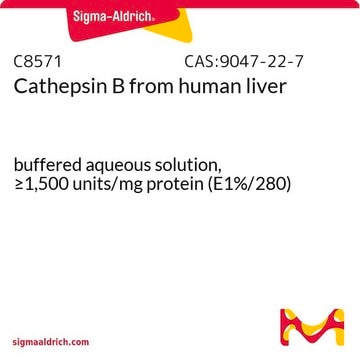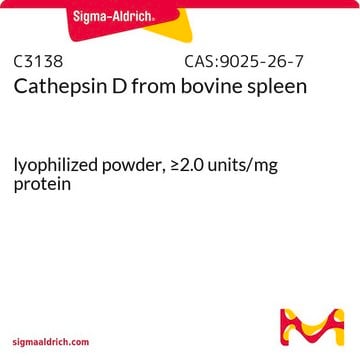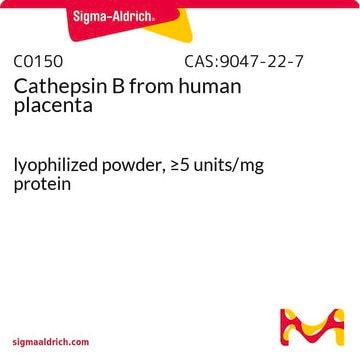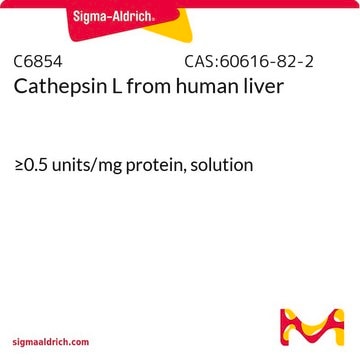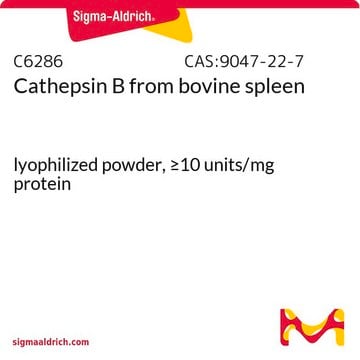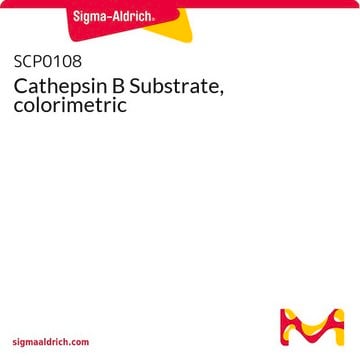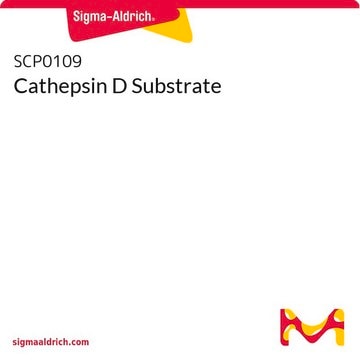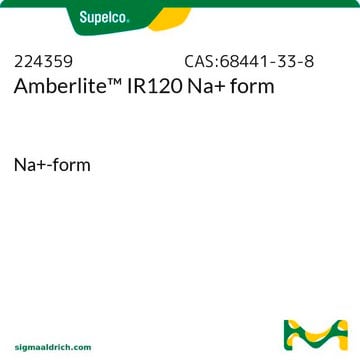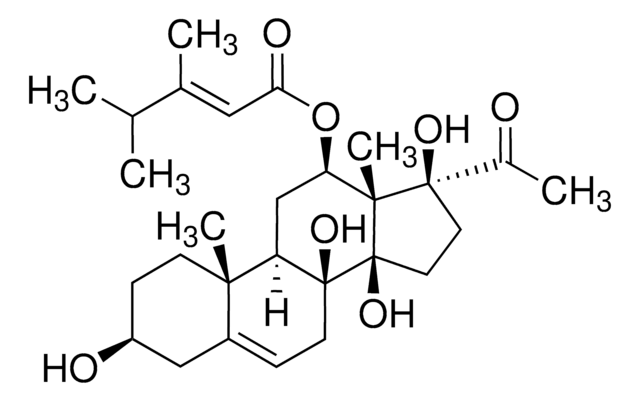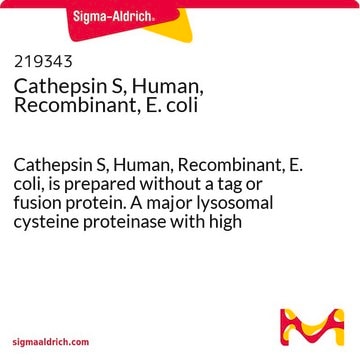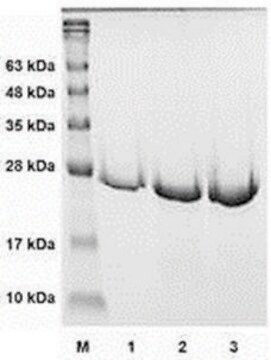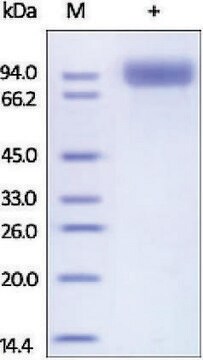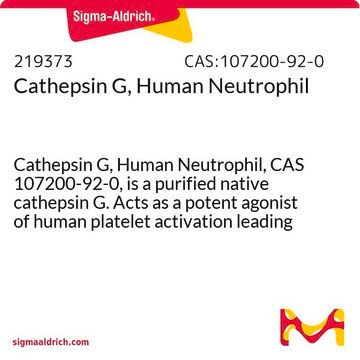추천 제품
형태
lyophilized powder
Quality Level
특이 활성도
≥250 units/mg protein (E1%/280)
분자량
~45 kDa
색상
white
UniProt 수납 번호
저장 온도
−20°C
유전자 정보
human ... CTSD(1509)
일반 설명
Cathepsin D is an aspartic protease, which is located in lysosomes. It is involved in protein catabolism and maintains hormone and antigen processing. Cathepsin D is implicated in neoplasia and neurodegenerative changes. It regulates lysosomal proteolysis and endogenous fibrinolysis.
애플리케이션
Cathepsin D from human liver has been used:
- in β-secretase activity assay
- for enzymatic degradation of amyloid β 1-42
- in microinjection of human foreskin fibroblasts
생화학적/생리학적 작용
Cathepsin D is an endosomal-lysosomal aspartic protease implicated in breast cancer metastasis and Alzheimer′s disease. Lysosomal release of cathepsin D has been found to precede cytochrome c release and loss of membrane potential in apoptotic human foreskin fibroblasts. Cathepsin D levels in PC12 cells increase 12 to 24 hours after apoptosis is induced.
기타 정보
Contains α, β and γ isoenzymes as observed by isoelectric-focusing.
단위 정의
One unit will produce an increase in A280 of 1.0 in 30 min at pH 3.3 at 37 °C measured as TCA-soluble products using acid-denatured hemoglobin as substrate (1 cm light path).
물리적 형태
Powder containing sodium phosphate buffer salt.
관련 제품
Storage Class Code
11 - Combustible Solids
WGK
WGK 3
Flash Point (°F)
Not applicable
Flash Point (°C)
Not applicable
시험 성적서(COA)
제품의 로트/배치 번호를 입력하여 시험 성적서(COA)을 검색하십시오. 로트 및 배치 번호는 제품 라벨에 있는 ‘로트’ 또는 ‘배치’라는 용어 뒤에서 찾을 수 있습니다.
이미 열람한 고객
Platelet membrane beta-secretase activity in mild cognitive impairment and conversion to dementia: a longitudinal study
McGuinness B, et al.
Journal of Alzheimer'S Disease, 49(4), 1095-1103 (2016)
Aspartic Proteinases Physiology and Pathology (1995)
Jeane do Nascimento Moraes et al.
The journal of venomous animals and toxins including tropical diseases, 28, e20220002-e20220002 (2022-11-22)
Cathepsin D (CatD) is a lysosomal proteolytic enzyme expressed in almost all tissues and organs. This protease is a multifunctional enzyme responsible for essential biological processes such as cell cycle regulation, differentiation, migration, tissue remodeling, neuronal growth, ovulation, and apoptosis.
Andrea Gilg et al.
Journal of translational medicine, 19(1), 190-190 (2021-05-05)
Endogenous Peptide Inhibitor of CXCR4 (EPI-X4) is a natural antagonist of the CXC chemokine receptor 4 (CXCR4). EPI-X4 is a 16-mer peptide that is released from human serum albumin (HSA) by acidic aspartic proteases such as Cathepsin D and E.
Jason S King et al.
Molecular biology of the cell, 24(17), 2714-2726 (2013-07-26)
Wiskott-Aldrich syndrome protein and SCAR homologue (WASH) is an important regulator of vesicle trafficking. By generating actin on the surface of intracellular vesicles, WASH is able to directly regulate endosomal sorting and maturation. We report that, in Dictyostelium, WASH is
자사의 과학자팀은 생명 과학, 재료 과학, 화학 합성, 크로마토그래피, 분석 및 기타 많은 영역을 포함한 모든 과학 분야에 경험이 있습니다..
고객지원팀으로 연락바랍니다.